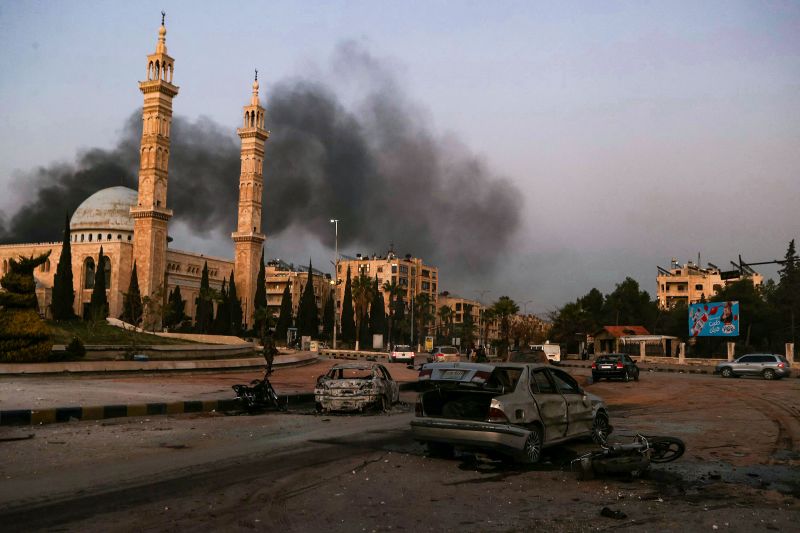
Syrian and Russian jets strike rebels after opposition seize much of Aleppo
Syrian and Russian jets have carried out strikes on opposition forces in northern Syria in retaliation for the sudden offensive that has cost the regime control of the country’s second largest city, Aleppo.
The offensive has also led to the capture by the rebel alliance of an important military base east of Aleppo and large areas of both Aleppo and Idlib provinces. It has met little resistance on the ground from regime forces and also comes at a time when Syria’s key backers – Iran and Russia – are focusing on their own conflicts.
The rebels’ sweeping success has posed the biggest challenge in eight years to President Bashar al-Assad, when Russian air power helped reverse rebel gains in the civil war.
The rebels consolidated their gains Sunday capturing key military sites in the east of Aleppo city. But they have left some neighborhoods in the hands of Kurdish forces.
The opposition forces’ control of Aleppo means that the regime counteroffensive promised by the Syrian defense ministry would be very difficult to carry out.
Government aircraft – along with Russian planes based in Syria – have carried out bombing raids against opposition positions in Aleppo and Idlib provinces.
The White Helmets, a Syrian volunteer service, said at least four people were killed on Sunday in airstrikes on Idlib city, a province that now appears to be entirely in rebel hands.
In his first comments since the lightning takeover, Assad has said that Syria will continue “to defend its stability and territorial integrity in the face of all terrorists and their supporters,” during calls with regional leaders on Saturday.
Assad said Syria was capable “with the help of its allies and friends, of defeating and eliminating them, no matter how intense their terrorist attacks are.”
The rebel offensive has reignited Syria’s long-running civil war, which killed more than 300,000 people and created nearly 6 million refugees. The conflict never formally ended and the flare-up is the most significant since 2020, when Russia and Turkey reached a ceasefire in Idlib.
The rebels are led by Hayat Tahrir al-Sham (HTS), a former al Qaeda affiliate in Syria that used to go by the name Al-Nusra Front, along with groups backed by Turkey and others previously supported by the US.
“Should they be cheering the opposition taking over Syria’s second-largest city Aleppo, or should they actually worry about the city falling under Islamist rule?” she said.
Aydintasbas believes the events that have unfolded in Syria show a new balance of power in the country, with Turkey emerging as a “major actor,” while Russia’s power is weakened and Iran is “on its back foot.”
